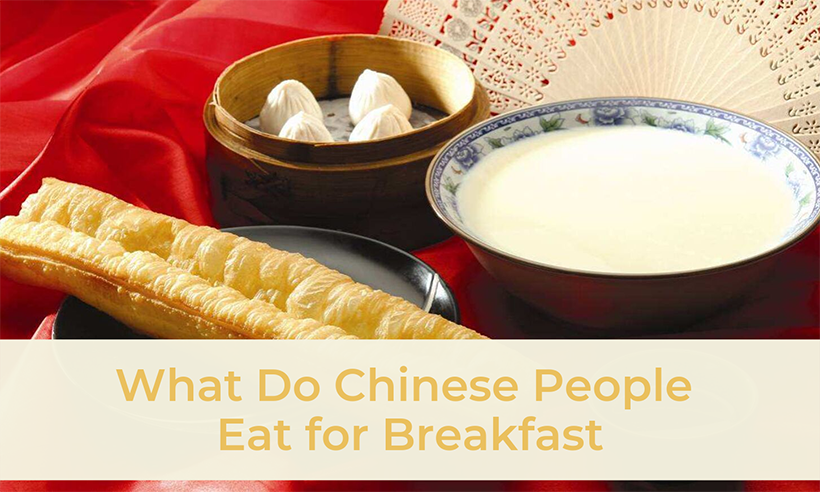What do Chinese usually eat for breakfast?
It’s true that a good breakfast will provide you with enough energy and consequently help you concentrate on your work. Chinese people are considered hard-working and diligent, and it’ll be interesting to find out what Chinese people eat for breakfast to keep themselves vigorous all day long. The answers will be given in this article.
1. Steamed Buns
Steamed buns (包子bāo zi) are very popular among Chinese people when deciding what to eat for breakfast. These buns usually present themselves as sweet or savory fillings wrapped in dough. A huge variety of fillings is what makes steamed buns an excellent choice for Chinese breakfast. In China, there are several methods of making steamed buns depending on the region, with their main differences lying in size and flavor. Crucial factors during the making of steamed buns such as leavening can directly affect their taste. The two most common types of steamed buns are meat buns (usually stuffed with pork) and vegetable buns. However, sweet fillings like red bean paste and custard are prevailing among kids. Some Chinese people show their preferences for a combination of one meat bun and one vegetable bun for breakfast as it is considered nutrition-balanced.
2. Deep-fried Dough Sticks
Deep-fried dough sticks (油条yòu tiáo) are another type of traditional Chinese breakfast. As China has become more open to foreign cultures, deep-fried dough sticks obtained a posh nickname as “Chinese-style French baguette” in that their shape resembles a French baguette. As suggested by its name, the method of preparing油条 (yòu tiáo) is to deep fry, which gives them a crunchy and springy texture when they are ready to serve.
Although deep-fried dough sticks are rather insipid, one of the reasons why they are so popular among Chinese people is that they go very well with soya milk. In fact, the smooth texture of soya milk perfectly neutralizes the dryness of dough and adds a flavor of fresh soybeans to its plain taste. Basically, there are three flavors (sweet, plain, salty) available for soya milk. Children in China often opt for sweet soya milk, whereas adults would choose plain or salty flavor as they are well aware of the fact that more and more Chinese people are now suffering from diabetes.
3. Pan Fried Pork Buns
Pan-fried pork buns (生煎shēng jiān) are what people from South China eat for breakfast on a weekly basis. 生煎(shēng jiān) features a pan-fried bun stuffed with fresh pork and topped with sesame seeds. Pan-fried pork buns are small in size and are usually served four to six at a time. They’ve become extremely popular thanks to the juicy meat fillings and the crunchy base. There are various types of fillings available, with pork being the traditional one and hence the most popular choice. However, Chinese people are known for being innovative when it comes to culinary culture, therefore, shrimps, crayfish or chicken meat can also be used to prepare the fillings.
5. Xiao Long Bao
小笼包(xiǎo lóng bāo) is a type of small steamed bun stuffed with pork. It’s very popular in East China, especially in Shanghai. The second character in its name “笼(lóng)” means “cage”, because the pork buns are usually steamed in cage-shaped bamboo steamers before they are ready to serve. The making of xiao long bao requires intricate skills and even a small detail. Like how the dough is pinched at the top can have an influence on its overall flavor. Originated in Shanghai, xiao long bao is something you must try if you happen to study or work in this fascinating metropolis. There are places selling these cute little steamed buns all day long in almost every corner of Shanghai. That helps local people easily decide what to eat for breakfast.
Check out our Vlog video about Traditional Chinese breakfast and follow Julie as she’s showing her favorite Chinese breakfast – here!
Have you tried any of these?
Leave a comment with your answer below – or tweet us at @thatsmandarin!









0 Comments